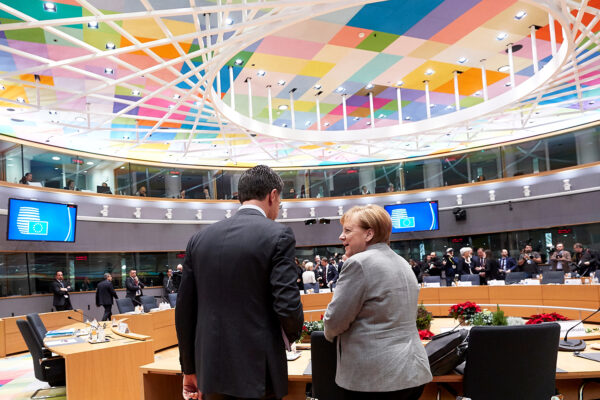
Most incumbent governments and leaders in Europe have seen their approval ratings go up since the outbreak of coronavirus disease.
- Denmark: Prime Minister Mette Frederiksen’s approval rating has risen 40 points to 79 percent. Her Social Democrats are up from 27 to 34 percent in the polls, mostly at the expense of the more left-wing Socialist People’s Party. The liberal Venstre, with whom the Social Democrats usually alternate in power, is down a few points.
- Finland: Prime Minister Sanna Marin’s Social Democrats are up from 16-17 to 22 percent. The far-right Finns Party, which was previously polling in first place, is down to 18 percent.
- France: President Emmanuel Macron’s approval rating has risen from an average of 33 to 41 percent, its highest in two years.
- Germany: Chancellor Angela Merkel’s Christian Democrats are polling as high as 40 percent, up from under 30 percent in March. The far-right Alternative and center-right Free Democrats are down a few points, but most of the increased support for the conservatives seems to come from the Greens. Support for the Social Democrats, the junior governing party, is stable at around 15 percent. Merkel’s personal approval rating is the highest in three years.
- Italy: Prime Minister Giuseppe Conte’s approval rating has reached a record 71 percent. The ruling center-left Democratic Party and anti-establishment Five Star Movement have been stable in the polls at a combined 37 percent. Support for the far-right League, the main opposition party, has fallen from 37 to 27 percent in the last year, but most of their voters have gone to the even more right-wing Brothers of Italy.
- Netherlands: Prime Minister Mark Rutte’s approval rating has risen from 45 percent before the crisis to 75 percent. His liberal party is up from 18-20 to 25-28 percent in the polls. Support for the other three ruling parties (Christian Democrats, liberal Democrats, Christian Union) is stable. The far-right Forum for Democracy and Freedom Party, as well as the seniors party 50Plus, are down.
- Poland: Support for the opposition presidential candidate Małgorzata Kidawa-Błońska collapsed, causing her to resign her candidacy when the election was postponed. The ruling Law and Justice party’s Andrzej Duda is likely to be reelected in June. The party also has a dominant lead in the polls.
- Sweden: Support for Prime Minister Stefan Löfven’s Social Democrats is up from 23 to 31 percent, despite its controversial refusal to order a lockdown like most European countries. The far-right Sweden Democrats, who polled neck and neck with the Social Democrats earlier this year, are down to 19 percent support. So are the center-right Moderates.
There are exceptions:
- Spain, where support for the ruling left-wing parties has been stable and the center-right People’s Party has gained popularity at the expense of the far-right Vox.
- United Kingdom, where the gap between the ruling Conservatives and Labour has narrowed since the center-left Keir Starmer took over as opposition leader from the far-left Jeremy Corbyn. Prime Minister Boris Johnson, who himself contracted COVID-19, is blamed for his delayed response to the outbreak.
